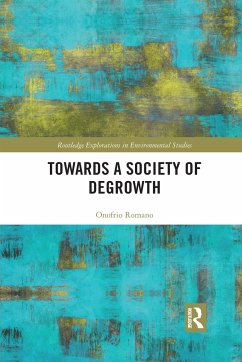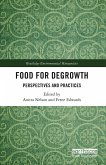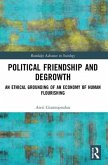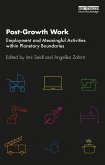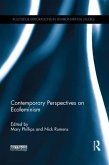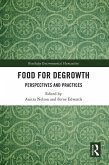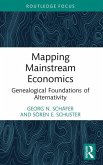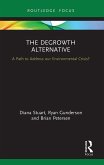This book explores the concept of degrowth, beginning from a basic assumption, not of resource depletion, as is common in most literature in the field, but rather from a state of abundance, arguing that there is a vast amount of energy on the planet waiting to be utilized by all its inhabitants.
Adopting a sociological approach, Onofrio Romano argues that the growth momentum is not simply a broadly shared "value," but the physiological outcome of a specific institutional frame. The problem is that in its mainstream formulation the degrowth alternative shares with the growth-led regime some basic anthropological, political, and institutional pillars. In order to build a real alternative, Romano suggests reviewing degrowth in the light of the dépense notion by Georges Bataille. According to Bataille, our societies have no problem with acknowledging scarcity, but with dealing with the surplus energy that calls us to act for a qualified life. So, in order to erase the growth obsession, we have to ward off the "servile" dimension, i.e., the utilitarian activities needed for the mere reproduction of life, to regain sovereignty, as reflected in the de-thinking subject.
Innovative and provocative, Towards a Society of Degrowth will be of great interest to students and scholars of degrowth, sociology, social anthropology, political ecology, and ecological economics.
Adopting a sociological approach, Onofrio Romano argues that the growth momentum is not simply a broadly shared "value," but the physiological outcome of a specific institutional frame. The problem is that in its mainstream formulation the degrowth alternative shares with the growth-led regime some basic anthropological, political, and institutional pillars. In order to build a real alternative, Romano suggests reviewing degrowth in the light of the dépense notion by Georges Bataille. According to Bataille, our societies have no problem with acknowledging scarcity, but with dealing with the surplus energy that calls us to act for a qualified life. So, in order to erase the growth obsession, we have to ward off the "servile" dimension, i.e., the utilitarian activities needed for the mere reproduction of life, to regain sovereignty, as reflected in the de-thinking subject.
Innovative and provocative, Towards a Society of Degrowth will be of great interest to students and scholars of degrowth, sociology, social anthropology, political ecology, and ecological economics.
"This is the most provocative existing book on degrowth. Onofrio Romano is one of the most original intellectuals I know, and always a great source of inspiration. The book will surprise you, it might even get on your nerves at times. In any case, be sure that it will not leave you indifferent. It will question your strongest beliefs and make you think. For this, it is definitively worth reading." -- Federico Demaria, ICTA, Universitat Autònoma de Barcelona, Spain
"Is living more than just surviving? Can the world be loved so much that one is ready to lose it? In this thought-provoking book, over which hovers the spirit of Bataille, Onofrio Romano explains why in his view both supporters and critics of degrowth are wrong. A recommended reading for anyone interested in a polemic bound to get hotter together with the world's climate." -- Luigi Pellizzoni, University of Pisa, Italy
"Romano's work has opened new frontiers for thinking about degrowth. In this book, Romano invites us to think about the social, not only economic, aspects of degrowth, starting from the premise that the problem we face is how to expend excess, not how to deal with scarcity. A must-read for everyone interested on degrowth or post-growth futures." -- Giorgos Kallis, CTA, Universitat Autònoma de Barcelona, Spain
"Romano is one of the most acute critics of the growth regime in which the modern society is entangled. At the same time, and for decades, he has been unveiling the sociological and anthropological weakness of certain degrowth narratives. If you believe that the growth regime has to be debunked and undone but you are unsatisfied with the main proposals of 'degrowthers' for what concern the institutional asset of the degrowth society, the political strategy to get there and the anthropological subject that will enact this project, then this book is a must read." -- Giacomo Dalisa, Center for the Social Studies, University of Coimbra, Portugal
"Is living more than just surviving? Can the world be loved so much that one is ready to lose it? In this thought-provoking book, over which hovers the spirit of Bataille, Onofrio Romano explains why in his view both supporters and critics of degrowth are wrong. A recommended reading for anyone interested in a polemic bound to get hotter together with the world's climate." -- Luigi Pellizzoni, University of Pisa, Italy
"Romano's work has opened new frontiers for thinking about degrowth. In this book, Romano invites us to think about the social, not only economic, aspects of degrowth, starting from the premise that the problem we face is how to expend excess, not how to deal with scarcity. A must-read for everyone interested on degrowth or post-growth futures." -- Giorgos Kallis, CTA, Universitat Autònoma de Barcelona, Spain
"Romano is one of the most acute critics of the growth regime in which the modern society is entangled. At the same time, and for decades, he has been unveiling the sociological and anthropological weakness of certain degrowth narratives. If you believe that the growth regime has to be debunked and undone but you are unsatisfied with the main proposals of 'degrowthers' for what concern the institutional asset of the degrowth society, the political strategy to get there and the anthropological subject that will enact this project, then this book is a must read." -- Giacomo Dalisa, Center for the Social Studies, University of Coimbra, Portugal

